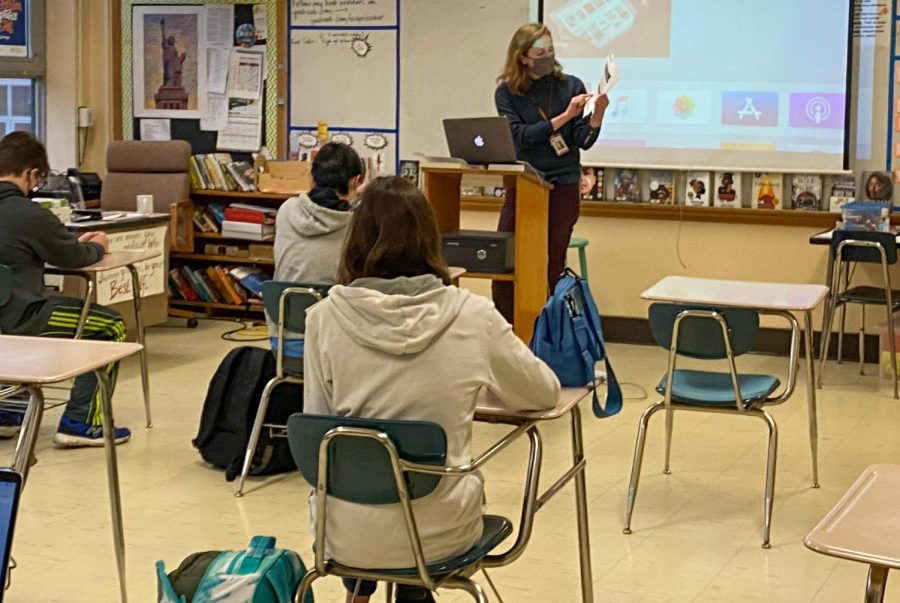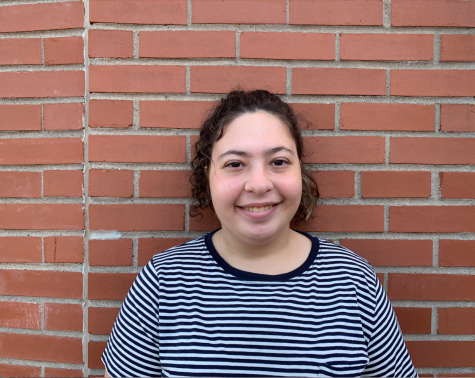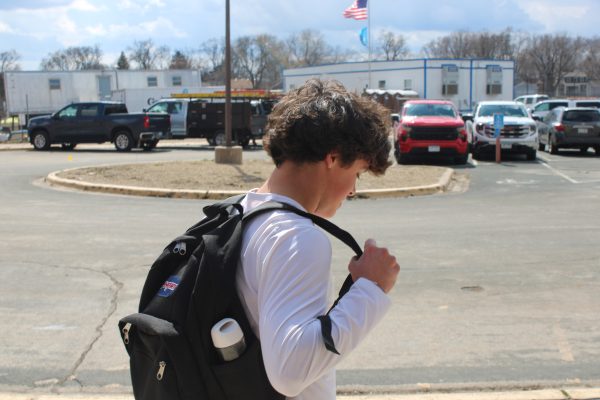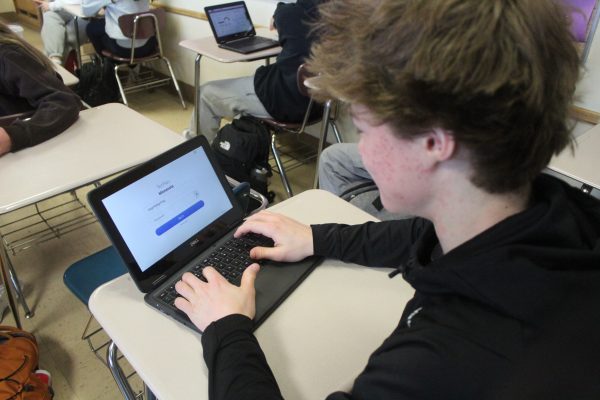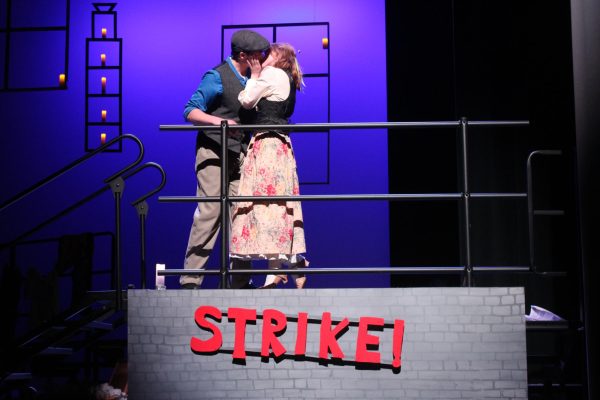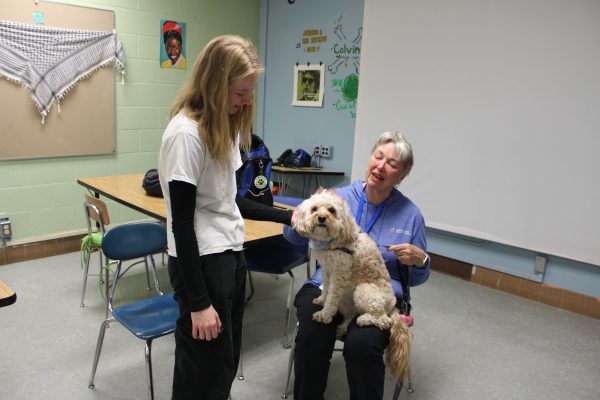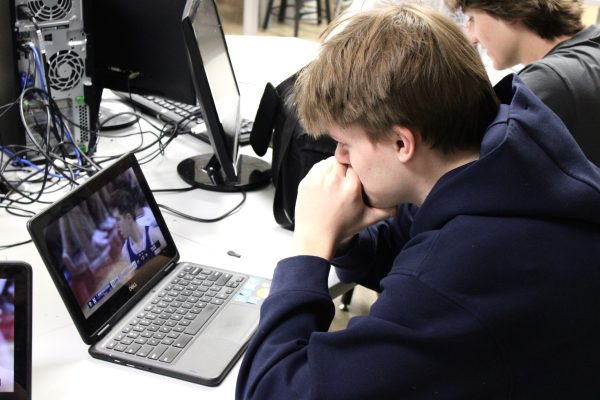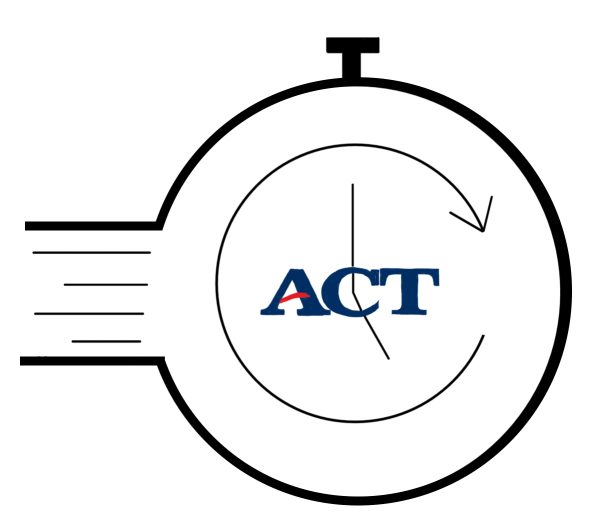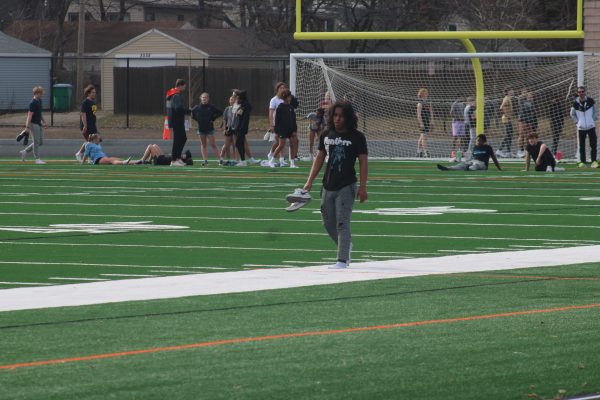Freshman adjust to hybrid high school
Starting first year in a pandemic
Civics teacher Cassandra Sheppard classroom with students social distancing and doing working March 16. Hybrid learning has proved beneficial for freshmen and provided learning opportunities for students.
March 28, 2021
For many freshmen, starting their first year of high school at home wasn’t something they expected, but had to do.
For freshman Solei Ceballos, it was tough for her at first to start out online, but as time went on she started to get used to it.
“For me it was very difficult at first, but I slowly got used to the routine,” Ceballos said. “I have gotten a lot better at school.”
According to freshman Zoe Ziessman it has been difficult to connect with her teachers since starting school on Zoom. It has been a big change — arriving from a different school.
“It was hard to meet your teachers and meet new people, especially coming from a different school,” Ziessman said. “It was definitely hard to connect with people and understand all the teachers’ homework, schedules and what the classes were going to be like, but after a while, I kinda got used to it.”
Freshman civics teacher Sarah Lindenberg said she has been teaching at the school for many years, and feels that the freshmen are coping the best they can with the new changes with learning.
“I think in a lot of ways they didn’t know what to expect in high school,” Lindenberg said. “Throughout the whole development of the whole school year, they may have coped the best, they didn’t have as many setbacks as I saw in the other grades.”
The start of high school online isn’t what many freshmen have anticipated, and has changed to an experience that Ceballos didn’t see coming.
“It’s a lot different than I expected it to be, it’s not as ideal where you just hang out with your friends. But it’s still pretty okay,” Ceballos said.
According to Lindenberg, she has attempted to involve her students in making choices in order to install somewhat of a normal setting.
“I try to get student interaction with the check-in question and the song of the day, and give students the opportunity to give choice into what we are doing in the classroom,” Lindenberg said. “Also they can hear each other’s voices, that’s part of the reason that I do the check-in question, so they can hear from each other.”
Being at home since school started, staying in contact with old friends has posed a challenge according to Caballos, but has also found opportunities to make new ones.
“I ended up losing a lot of friends due to quarantine, but when we went back into hybrid I met a lot of new friends, and I’ve just been connecting a lot with them,” Ceballos said.
According to Ziessman, she feels she missed out on a regular orientation, and wished she could have connected with her friends from the start.
“I wished I could have experienced a normal orientation, because I always hear that orientation is where you meet a lot of your friends, at least for freshman year, because the periods were so short, we couldn’t really do many activities, I definitely think that that was a miss,” Ziessman said. “Also group projects, that would have been a way to meet new people, but we haven’t done any group projects, and I wished I could have experienced football games and stuff like that.”
Lindenberg has been in awe by the way students have embodied the capability to be able to cope with the new change the best way possible. According to Lindenberg, it is hard to stay motivated and engaged when at home.
“I have been really impressed by students’ ability to adapt and be flexible and persevere,” Lindenberg said. “It’s hard to stay engaged when you’re trying your best to do that from home and your relaxation place of being at home is now mixed with your work place.”



